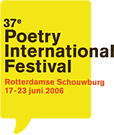Poet
|
Adam Zagajewski 1945 country: Netherlands Pools |
werd geboren in Lwów en studeerde filosofie in Kraków. Vanaf de jaren ’70 groeide hij uit tot één van de bekendste dichters van Polen. Over zijn poëzie schreef vertaler Gerard Rasch: ‘Het gaat hem altijd om de vertolking van hetgeen schuilgaat achter de tegenstrijdigheid en onverenigbaarheid van de zichtbare werkelijkheid, de 'niet-voorgestelde wereld', om inzicht ook in het onzegbare van de schoonheid.’ Donderdag 12 juni, 21.45 uur, Grote Zaal In 1982 Zagajewski emigrated to Paris, for personal reasons. Here his full talent finally came to fruition. His poetry became what Czeslaw Milosz described as 'a meditation on the flowing of time in which the historical and the metaphysical meet'. It is rich in concrete detail, averse to abstraction, and in unexpected associations often links the past and the present; time becomes multilayered. Zagajewski tries to express what underlies the conflicts and inconsistencies of tangible reality, what I conveniently referred to above as the 'metaphysics of everyday experience'. Zagajewski himself calls it 'mysticism for beginners': probing everything which, being visible and tangible, cries out to be expressed, but can only be approached, or hinted at. Reality does not reveal its true meaning, which remains hidden in myth. Because, as Zagajewski says in his short poem 'The Voice': 'That which sings, is that which does not speak.' Author: Gerard Rasch |


